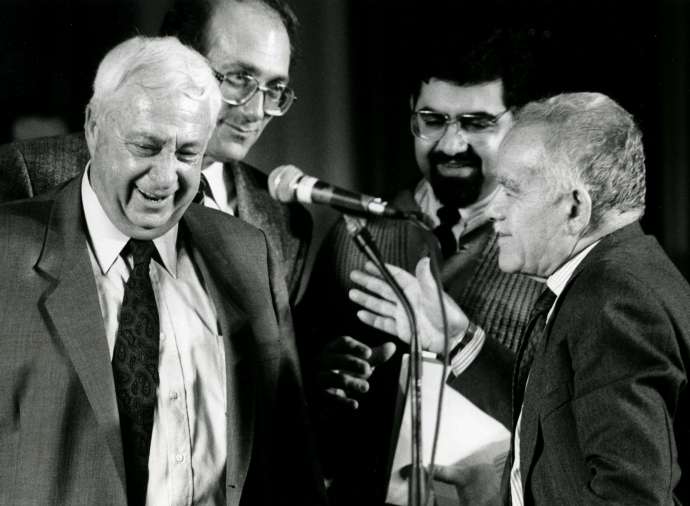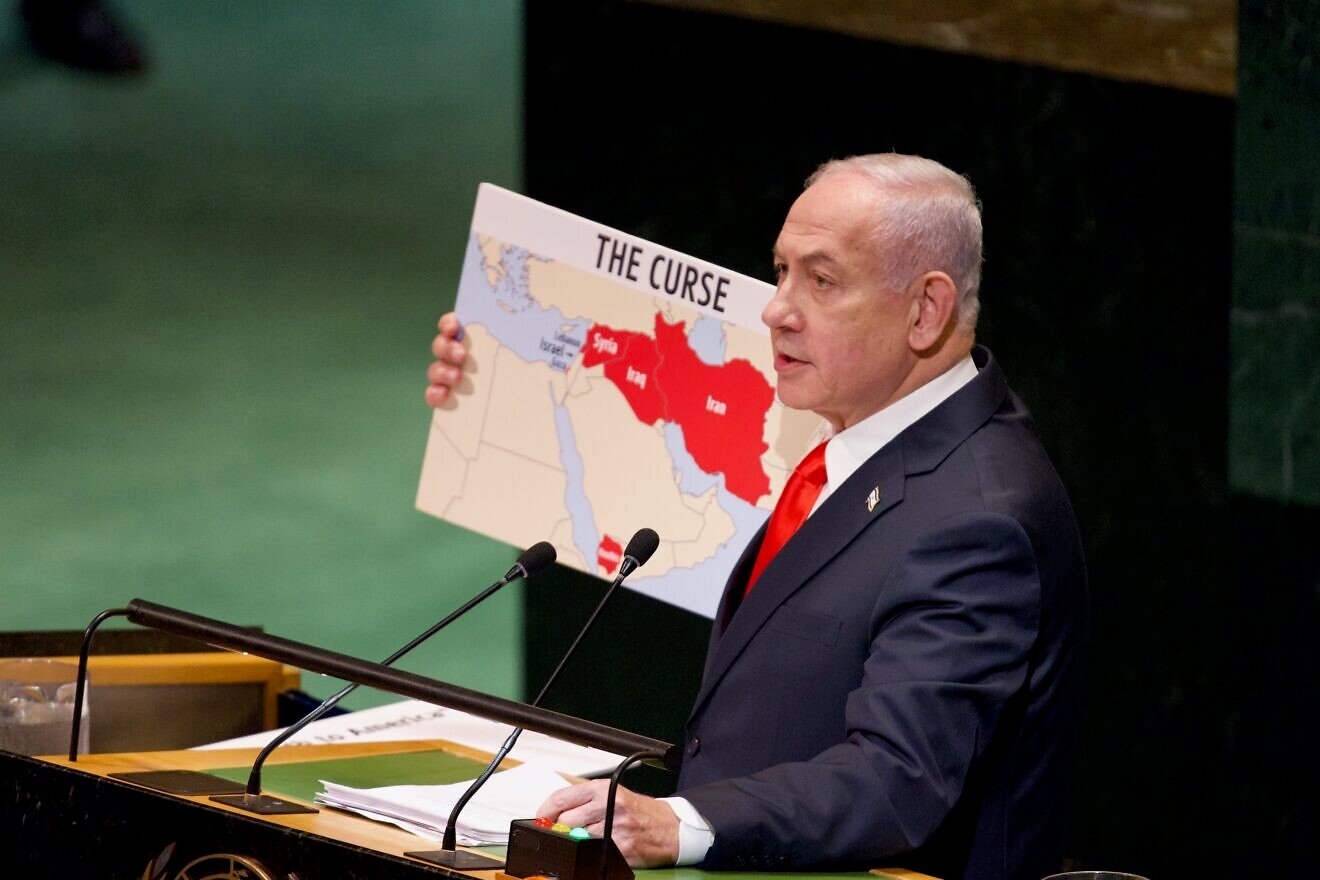The Likud party is the largest right-wing party and in general the Knesset faction in Israel in recent years. The party was established on September 13, 1973 before the elections to the 8th Knesset. It consisted of a combination of several factions including a liberal party and the movement for the “Whole Land of Israel.”
The main initiator of the cooperation between the right-wing parties, and the one who ultimately led to a full unification of all of them, was Ariel Sharon, who retired the same year from the IDF.
The person who stood first as chairman of the Likud was the veteran leader of the Herut (freedom) movement and former commander of the pre-IDF Etzel, Menachem Begin. The values of the Likud from the day it was founded were social equality, a free market and the preservation of Jewish tradition and culture, values that were largely modeled on the teachings of Ze’ev Jabotinsky, who is considered the ideological father of the Likud party.
In 1973, the first election campaign in which the Likud party participated, it obtained 39 mandates, compared to 51 mandates obtained by the left-wing Labor party that had ruled Israel since its foundation. At the beginning of the election period for the 9th Knesset in 1977, Begin had a heart attack. As a result, he did not take a significant part in the beginning of the election campaign, though with great effort he managed to participate in a televised debate with Shimon Peres from the Labor Party.
The debate did not determine a winner, but Begin managed to remove the label of extremist they tried to pin on him, and he showed that he was worthy to serve as prime minister. The election of 1977 is considered historic, since the Likud party succeeded in making a change of government and removing the Labor party from the post of prime minister for the first time since the establishment of the State of Israel.
The Likud’s victory was called by the news broadcaster Haim Yavin a “reverse,” a word that means revolution, shake up, or change over. What helped this to happen was the Yom Kippur War of 1973, in which the army forces and the government were surprised by an Egyptian and Syrian attack on the country, and many considered the Labor party’s lack of preparation to be a major liability.
The main achievements of the first Likud government were the peace agreement with Egypt; establishing Jewish settlements in Judea and Samaria, the Gaza Strip and the Galilee; the rehabilitation of poorer neighborhoods; and the bombing of the nuclear reactor in Iraq. In addition, with the support of the Begin government, the Jerusalem Law was enacted which enshrined in law the status of united Jerusalem (Arab and Jewish) as the capital of the State of Israel. In the tumultuous election of 1981, for the 10th Knesset, the Likud won 48 mandates compared to the Labor Party’s 47, and thus a narrow government was formed under the leadership of Menachem Begin.
This government is known for its decision to embark on Operation Peace in the Galilee, which developed into the First Lebanon War. In 1983, Begin resigned as Prime Minister and the Likud leadership with the statement: “I can’t do it anymore” due to the high number of soldiers killed in the Lebanon War.
Yitzhak Shamir replaced Begin as Prime Minister of Israel and as Likud Chairman. The Israel that Shamir received was a socially polarized country with a difficult economic situation and an ongoing war. Despite the difficulties, under Shamir’s leadership the Likud managed to win 41 seats in the 1984 elections for the 11th Knesset. But the Labor Party had won 44 under the leadership of Shimon Peres. After the political crisis created by the elections, a national unity government comprised of the Likud and Labor was formed. Peres served first as prime minister in a rotation with Shamir.

After the elections to the 12th Knesset, a Likud-Labor unity government was again formed, this time without a rotation. Shamir alone served as prime minister. At that time, the party opposition in Likud to Shamir grew stronger, including Ariel Sharon and David Levy, who were in fierce rivalry with one another to one day replace Shamir. In 1990, the unity government fell apart and was replaced by a narrow government of the Likud and the religious parties. In the 1992 elections for the 13th Knesset, the Likud obtained 32 mandates compared to the Labor Party’s 44. After this election, Yitzhak Shamir resigned from the position of Likud chairman.
After Shamir’s resignation, Likud internal elections were held. The two main candidates were Benjamin Netanyahu and David Levy. After a tumultuous election, Netanyahu was chosen as chairman of the Likud and in the elections to the 14th Knesset in 1996, Likud was victorious and Netanyahu for the first time became prime minister.
Netanyahu did not maintain good relations with his ministers in the government, which caused them to resign both from his cabinet and even from the Likud. In the 1999 elections for the 15th Knesset, the Likud suffered a resounding defeat and as a result Netanyahu retired from the position of Likud chairman and from political life temporarily.

After Netanyahu retired, Ariel Sharon was appointed temporary chairman of the Likud and continued to serve in that post after winning the party primaries. In July 2000, the Likud promoted Moshe Katsav, who was a member of the Knesset on behalf of the Likud, to the position of president. Against the background of the failure of the peace talks within the framework of Camp David and the outbreak of the First Intifada, new elections were scheduled in 2001. Sharon won and established a unity government with the Labor Party. In November 2002, the Labor Party withdrew from the government, which led to a new election. In 2003, Sharon once again won after defeating Netanyahu in the party primaries. Netanyahu was appointed Minister of Finance under Sharon and pulled the Israeli economy in the direction of capitalism, which reduced the political deficit, but hurt the weaker sectors of society. In 2004, Sharon began promoting his political plan – the disengagement from the Gaza Strip and the evacuation of the settlements there.
Before acting, Sharon checked with Likud members and held a party referendum. A majority opposed the disengagement plan. So Sharon held a second referendum on the same issue, but again, there was a majority against. Sharon then decided that he would carry out the disengagement plan even if the members of his party opposed him. Sharon put the disengagement plan up for a vote in the Knesset and even threatened Likud members that anyone who voted against would be fired. The plan was approved by the Knesset and a week before the disengagement from Gaza began, Benjamin Netanyahu resigned from the Knesset. In November 2005, Sharon tried to appoint some of his confidantes as deputy ministers, but met with widespread opposition. A few days later, Sharon resigned from the Likud following the party’s opposition to the disengagement plan. Sharon then founded the Kadima party with retirees from the Likud and Labor parties.
After Sharon retired from the Likud, Netanyahu won the leadership of the party in the primaries and returned to serve as chairman of the Likud (to this day). In the 2006 elections, the Likud lost to Ehud Olmert of the Kadima party and Netanyahu served as head of the opposition. Only in the 2009 elections did Likud return to being the ruling party. Even though it received fewer mandates than Kadima, Netanyahu managed to form a coalition majority. From 2009 to 2021, the Likud led by Benjamin Netanyahu has been the ruling party in the State of Israel. However, in 2021, he failed to form a coalition, which led to Naftali Bennett becoming prime minister, until his broad coalition failed to maintain enough unity to survive, which led to the collapse of his government. Yair Lapid took over as head of a caretaker government until the November 1 election, in which Netanyahu and his allies scored a decisive victory putting Likud firmly back on top.














